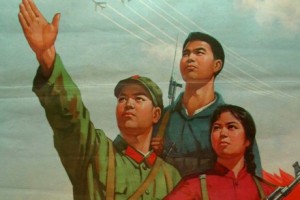 By Peter Galuszka
By Peter Galuszka
In the past day or so, there’s been a bit of buzz about a decades-old plan to expand the northwest to southeast route U.S. 460 takes through Virginia’s peanut country on its way to Tidewater. This latest bit of boosterism posits that giant ships inbound to Virginia via the widened Panama Canal will make for a large opportunity in trade.
Since existing Interstates linking Virginia Port Authority facilities in Norfolk, Portsmouth and Newport News are inadequate to handle the transshipment of cargo containers (and the role of railroads Norfolk Southern and CSXT is curiously left out of the equation), the thinking seems to be that U.S. 460 is the only way to go. Or, we miss out on a big bonanza. Or so “economic development officials” think.
I, for one, have never been completely trusting of economic development people. They are like Realtors trying to make sales. The last bargain they brought us involved Amazon sans state sales taxes. That idea was so wrong-headed that the public screamed and the General Assembly actually slapped on the country’s largest digital retailer to same tax a small Virginia business has to pay. So much for intelligence or egalitarianism.
Yet there’s a much bigger issue out there that must be considered before Virginians start signing all those public-private deals to create superhighways through Planters-land. Most of the increase in imports that will enter the U.S. thanks to the Panama Canal project will be from China. Believe it or not, the U.S. has big and unresolved issues with the People’s Republic, which still is a Communist-controlled country that puts dissidents in jail or exiles them.
For evidence, look no farther than the op-ed page of today’s New York Times. Richard A. Clarke, who was George W. Bush’s special advisor for cybersecurity, warns that Chinese officials have long raided our Websites and data bases and emails to mine out advantageous bits of intelligence, mostly of an economic nature. Among victims of China’s data theft are such as firms as Sony, Citibank, Lockheed, Booz Allen, Google, EMC and Nasdaq. By hacking our files, the Chinese gain a leg up in research. They don’t have to spend so much on R&D because they can easily steal ours.
Meanwhile, a new report by the Brookings Institution is so worried about such thefts of intellectual property and cybersecurity that it urges a new round of negotiations between Washington and Beijing before things really get out of hand. “U.S.-China strategic distrust is growing, is potentially very corrosive, is little understood on either side, and therefore should be addressed directly as a major issue,” write authors Kenneth Lieberthal and Wang Jisi.
The authors cite some other familiar issues, such as Beijing’s one-sided currency trading and hard-edged trade policy negotiating as reason for wariness. Another issue is China’s acceleration of military strength. This may not involve the ability to strike globally with nuclear weapons as was the case with the former Soviet Union, but China is making big strides with regional weaponery that could ward off U.S. tactical moves or threaten Taiwan. A big component involves the ability to hack digital files and launch cyberattacks.
President Obama is wary of the threats China is posing. As wars in South Asia wind down, he is proposing placing U.S. Marines in Australia. They would be a small force designed to be a tripwire and send a message to Beijing that the U.S. is nearby and might respond to aggression.
As one who has covered the Soviet Union and Russia for many years, I have always been puzzled about why the U.S. was quick to slap the Russians with trade sanctions a’ la Jackson Vanik while the Chinese got away with similar human rights violations not to mention very hardball economic and trade policies.
From the sounds of it, Virginia’s economic development sector either doesn’t know or doesn’t want to know about the uncertainty of where America’s future with China is going. If they don’t start paying attention, however, we might end up with huge, empty ships at deserted docks with the rest of us paying for a huge, underused highway.


